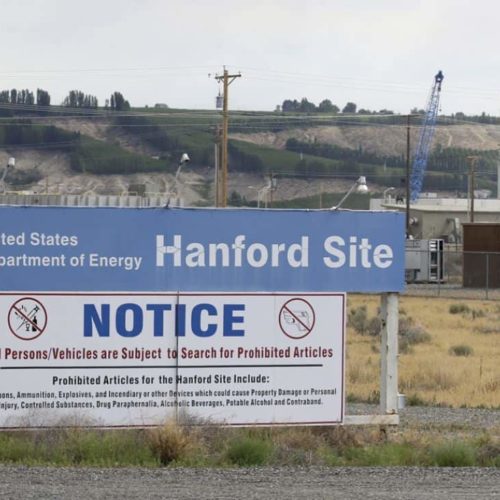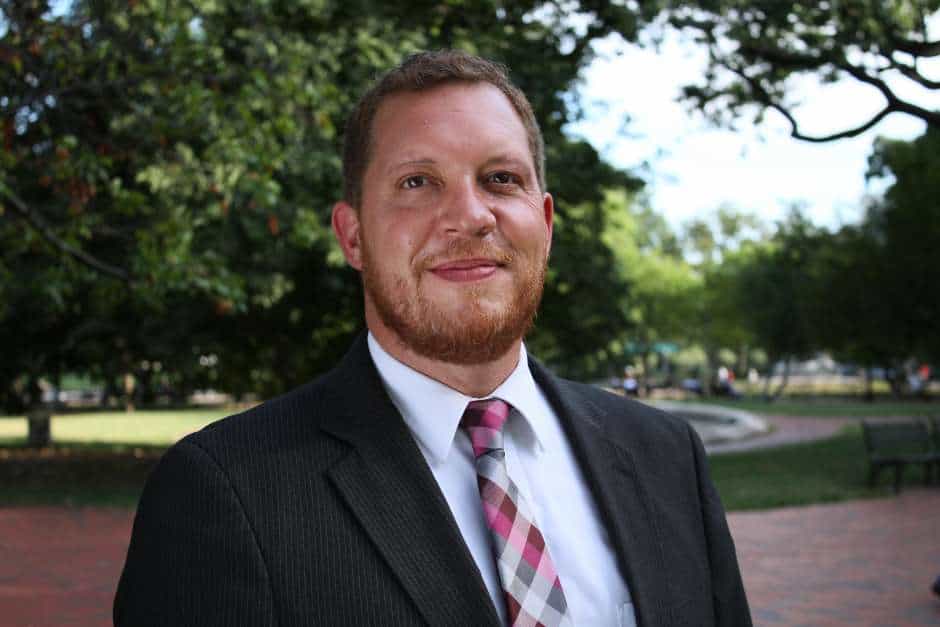Introduction
This article has been co-published with USA Today/Gannett.
A $67.5 million payment by a major nuclear weapons contractor to settle claims that it illegally spent federal funds is the latest in a series of settlements stemming from allegations that firms making bombs and cleaning up the resulting debris are using federal money improperly to win support for continued weapons-related work.
Altogether, the three companies that have made such settlement payments since 2013 are involved in the operation of six of the eight active sites in the Energy Department’s nuclear weapons program. Actions by the Energy Department’s contractors — including any misspending — have substantial impact, since contract work consumes roughly 90 percent of the department’s total budget.
The lobbying activities at the heart of the latest settlement helped one of the contractors win a $45 million award for additional cleanup work. Although work on energy generation and consumption garners more public attention and President-elect Donald Trump has nominated an oil-state politician — former Texas governor Rick Perry — to become the department’s new top manager, such nuclear weapons-related work accounts for nearly two-thirds of all the department’s activities.
The latest case emerged from a civil lawsuit that accused two companies of performing substandard work at a nuclear weapons-related waste site and said one of them had improperly spent government funds to lobby for more. The companies declared on Nov. 23 they would settle the allegations by making payments, mostly to the federal government, for a total of $125 million, a massive amount for alleged Energy Department-related malfeasance.
The settlement involves work by Bechtel National Inc. and its parent Bechtel Corp., and URS Corp. and its subsidiary URS Energy and Construction Inc., which together have been trying to clean up the Hanford Nuclear Reservation near Richland, Washington. That’s where raw uranium was enriched into fuel for nuclear bombs during the Manhattan Project and the Cold War.
The firms have denied doing anything improper. But the settlement is part of an emerging pattern.
Lockheed Martin Corp., which operates one of three U.S. nuclear weapons laboratories – Sandia, agreed in August 2015 to pay $4.7 million to settle a complaint by the Justice Department that it used federal funds to lobby for a no-bid contract extension. Last Friday, it lost that effort when the Department of Energy selected a different contractor team, led by Honeywell International, to run Sandia for up to a decade, beginning next year. Meanwhile, Fluor Corp. paid $1.1 million in April 2013 to settle accusations that it used federal funds to lobby government agencies for more business at its Hanford training facility.
Worries about the mission being undermined
Besides overseeing the Hanford cleanup, Bechtel and URS (now owned by a company called AECOM) help operate the other two U.S. nuclear weapons labs — Los Alamos and Lawrence Livermore, which perform the bulk of U.S. nuclear weapons design work. Altogether, the firms that have reached the settlements since 2013 are involved with operations at Los Alamos and Sandia in New Mexico, Livermore in California, the Pantex Plant in Texas, the Savannah River Site in South Carolina, and the Y-12 National Security Complex in Tennessee.
The recent settlement “demonstrates that the Justice Department will work to ensure that public funds are used for the important purposes for which they are intended,” Benjamin C. Mizer, principal deputy assistant attorney general in charge of the Justice Department’s civil division, said in a written statement released on Nov. 23.
Money allocated by Congress for Hanford “is intended to fund the Department of Energy’s important mission to clean up the contaminated Hanford nuclear site, and this mission is undermined if funds are wasted on goods or services that are not nuclear compliant or to further lobbying activities,” Mizer said.
Both Bechtel and AECOM in written statements said the settlements were made to avoid messy litigation and keep the waste plant project moving. “We have performed our work…ethically and professionally,” Bechtel National Inc. spokesman Fred deSousa said in a written statement, without going into details.
In its own written statement, AECOM — which acquired URS in 2014 — complained that the Department of Justice joined the whistleblowers’ “unwarranted lawsuit against URS” based on events that preceded AECOM’s acquisition of the company. “We take our responsibilities as a government contractor very seriously and have a demonstrated track record of serving our customers with honesty and integrity,” the company’s statement said.
The Justice Department’s involvement in the case originated in civil allegations of mismanagement and wrongdoing in Hanford’s Waste Treatment and Isolation Plant project, commonly called “WTP.” Under its contract with the Energy Department, Bechtel designed and is constructing machinery to convert nuclear-tainted wastes there into a stable, glassy substance suitable for safe disposal.
Three whistleblowers — Walt Tamosaitis, Donna Busche and Gary Brunson — filed a lawsuit on Feb. 4, 2013, accusing Bechtel and URS bosses of mismanagement and misappropriation of funds over a dozen years that together cost the government more than $1 billion. They also said safety lapses at the site, motivated by a desire to meet Energy Department deadlines and collect financial bonuses, were serious enough to risk a nuclear accident.
The whistleblowers’ complaint triggered an investigation by the Energy Department’s Office of Inspector General, which collected emails sent between Bechtel’s project leaders, the company’s top congressional lobbyist for nuclear projects, and Energy Department employees. The whistleblowers’ attorneys subsequently obtained the emails through the civil discovery process and incorporated them into an amended complaint. The Justice Department, in turn, used the complaint as the basis for its own investigation of Bechtel and URS.
Getting $45 million in new work
In the complaint, the whistleblowers said that when they originally lodged accusations of mismanagement — several years earlier — Bechtel project leaders launched a coordinated lobbying campaign to defend their work and also to collect new revenues for additional work on the waste treatment plant project. It then billed the department for the costs of this lobbying, the complaint said.
In January 2010, it said, a Bechtel manager on the WTP project sent the company’s top lobbyist for nuclear programs a letter meant to be delivered to key congressional staff to “determine their ‘anxiety’ level” about criticisms of the company’s performance. After his investigation, the lobbyist became convinced that there would be no immediate, adverse consequences, and the company decided to ask for $50 million on top of the $690 million already slated for the project, according to the complaint.
In an email sent by one Bechtel manager to another — along with a chart detailing the work that the company could say the additional revenue would finance — the manager said “in reality if we did not receive the additional $50m … most of these activities would still likely happen,” according to the whistleblowers’ complaint. The company subsequently got $45 million added to its contract.
The full emails detailing these actions have not been publicly released, by either the government or the plaintiffs, because the messages are part of an investigation that remains “open and ongoing,” according to Felicia Jones, spokeswoman for the Energy Department Office of Inspector General. She declined to say whether her colleagues consider the whistleblowers’ description of the emails accurate.
The Justice Department’s statement affirmed that it had “alleged that Bechtel National Inc. and Bechtel Corp. improperly claimed and received government funding for lobbying activities.” But Justice Department spokeswoman Nicole Nava declined to comment about the whistleblower’s account of specific emails.
Lobbying Congress for new work isn’t against the law. But billing the government for lobbying is, according to the federal Byrd Amendment, approved by Congress in 1989. Court records state that Bechtel will pay $67.5 million of the settlement, and AECOM will pay $57.5 million; the amount of money that will go to the whistleblowers — who are entitled to a portion of any funds they help the government recover — has not been determined yet.
Charles Curtis, who oversaw the Energy Department’s nuclear weapons work from 1994 to 1997 while serving as undersecretary and then deputy secretary, said he was not aware of any improperly-funded lobbying during his tenure. But he expressed surprise that multiple contractors within the past three years have been caught doing it. “These are for-profit enterprises. They can use their shareholders’ money for lobbying, but to use congressionally appropriated money [is] a diversion of funds,” Curtis said. “It’s not only unethical … it’s illegal.”
Three years ago, it was the Fluor Corporation and its subsidiary Fluor Hanford Inc., which at the time held the contract to manage the Hanford site, that agreed to pay $1.1 million to settle a separate complaint that its officials lobbied with government money from 2005 to 2010 to drum up business for a federally funded training facility there. Loydene Rambo, a Fluor employee, triggered the settlement by filing her own whistleblower suit, based on what she described as records of the lobbyists being paid with federal funds. She received a $200,000 reward, and Fluor denied any wrongdoing.
The Justice Department’s August 2015 settlement with Lockheed Martin Corporation, which runs Sandia, similarly followed improper billing of the government for a more complex and elaborate lobbying effort to extend its management contract, according to a special investigation report released by the Energy Department Office of Inspector General. Lockheed agreed to pay $4.7 million in 2015 to settle the Justice Department’s complaint about the billing. Like Fluor before it and Bechtel and URS since, Lockheed Martin in a written statement denied it had done anything wrong.
Asked by the Center about how the lobbying settlements have affected the department’s relationship with its nuclear weapons contractors, Energy Department spokeswoman Bridget Bartol said in an email that “the Department has taken and will continue to take vigorous action against any contractor who spends federal funds on improper lobbying activities.”
Bechtel remains the primary contractor on the WTP project, and Lockheed Martin still holds the contract to operate Sandia National Laboratories.
Cleanup of the Hanford site was authorized 25 years ago, and as of 2000 it was expected to cost $4.3 billion and be completed in 2011. The Department now estimates it may not be fully operational until 2037, according to pleadings filed in federal court by government lawyers defending the Energy Department in a lawsuit brought by the state of Washington to force an acceleration of the cleanup. If the job is funded at its current level of about $690 million a year until 2037, the cost would exceed $15 billion.
President-elect Donald Trump’s transition team is mindful of the project’s problems and growing price tag. A recent memo to top Energy Department officials from the transition team he appointed asked them to describe “your alternatives to the ever increasing WTP cost and schedule, whether technical or programmatic.”
Read more in National Security
National Security
Trump’s immigration orders face legal and fiscal ‘reality checks’
Hefty pricetags, litigaton could slow progress on president’s promises
National Security
Military trainees at defense universities later committed serious human rights abuses
Foreign officers who attended top Pentagon schools were later accused of rape, murder, genocide, and coups, according to State Department reports


Join the conversation
Show Comments